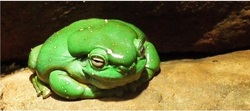|
You can pay several month's wages for a high quality long lens. But is it worth it?
I was recently asked about photographing subjects that are far away, and how to get a better result. My answer was: "Forget digital zoom. It buys you nothing more than you can achieve by cropping your image in the computer. There is no substitute for getting closer to your subject. Telephoto lenses compress the field so that objects look a little like cardboard cut outs. They also lose light in the optics. Well over 90% of most people's shots do not have to be taken with a telephoto lens. Some people just get lazy and 'zoom in' rather than walk a few paces forward. The remaining small percentage of worthwhile shots that need a zoom or telephoto fall into specialist categories: some sports photography wild life photography spying on celebrities... Of course there are other situations where a zoom or telephoto is nice. But these lenses are hard to use properly. You need good light to take a sharp photo. In low light or even average light, your long lens robs even more. This causes wider apatures, more difficult focusing, higher ISO (or sensitivity settings) which leads to more grain in the image. Low light needs slower speeds which contributes to camera shake, and motion blur. A log lens greatly amplifies camera shake. So a long lens benefits from a tripod. But to use a tripod, you need to be able to set it up quick. It's cumbersome and sometimes heavy or not permitted in certain areas. To mitigate some of these issues, you need a "fast" lens. This means one that gathers a lot of light to compensate for the losses. That costs a lot of money. In addition, particularly with complex zoom lenses, the construction of long lenses demands high quality optics. Otherwise chromatic aberration, and distortions become apparent in the resulting picture. Again, you will need to spend big money to get the best quality lenses. Perhaps with the high quality zoom lens, it becomes possible (but not probable) to take some great zoom shots." Okay - So what am I saying here? If you are starting out in photography, there are many much cheaper methods to get better pictures. Photography has so many technical obstacles that huge improvements can be made without spending $4000, or even $40000 on a long lens. In my opinion, since 90% of normal shots can be made with a basic digital camera costing perhaps $150 and do so on automatic settings, then most of the technical challenges are taken care of very well even for a child. Despite this, there are literally millions, or probably billions of photographs taken each year that are boring and unremarkable. Therefore, my ultimate advice is to spend a few dollars on some good books to learn about composition. Good composition can overrule many sub-optimal technical results. A well composed shot will win-out every time over a technically perfect (but boring) shot. The main difference between a good professional photographer and an amateur is often seen not in the content, subject or technical result, but in the artistic result. By the way, the green tree frog above was taken with the stock zoom lens supplied with my camera which is approximately a maximum of 80mm focal length in "35mm-speak", then cropped. Unless you have all the technical details covered as second-nature, and only if you have a genuine need to photograph things that permanently stay far away from you, then don't waste your money on a professional long lens. Use the cash on a course in composition, or good books on the subject.
1 Comment
3/11/2010 03:57:53 pm
Very interesting. I'm someone who is very new to photography but wish to learn more about it so that I can take my own photos for use as references for my drawings.
Reply
Your comment will be posted after it is approved.
Leave a Reply. |
(C) Jeremy Lee 2010, all rights reserved.
Note: I am allowing the blogs in the category 'Book' to be stored for personal use only, but not for distribution or commercial use. Should you wish to reproduce any material, please contact me for negotiations. Categories
All
spOOkspOOk's art is owned by Jeremy. He has practiced drawing and painting for about 40 years, and might get good at it one day. spOOk's art is focused on graphite portraits. Archives
October 2016
|


